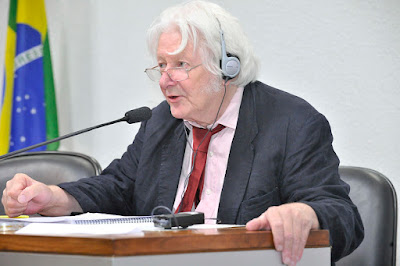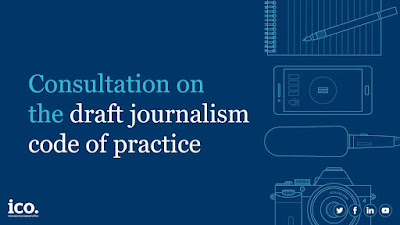 |
| Fall River Police Department Photo by Kenneth C. Zirkel (CC BY-SA 4.0) |
News reports state that Harden, 30, became involved in a physical altercation with two police officers trying to arrest him at his home. Harden was confined to the home with a GPS bracelet while charges were pending in an assault case, WBZ reported in December. According to police, Harden repeatedly stabbed at one of the officers with a metal object, possibly a steak knife, and the other officer shot and killed him.
Bristol County District Attorney (DA) Thomas M. Quinn III investigated and announced in December that police had complied with the department use-of-force policy, WBZ reported. But the family has not yet seen the full record of the investigation, the Fall River Herald News reported after the "Justice for Anthony" rally on Saturday, and the family alleges inconsistencies between a private autopsy and the DA's conclusion.
In light of the police accountability movement that erupted in recent years in the United States, my Freedom of Information (FOI) Law seminar in the fall semester took up law enforcement transparency as a special topic. Sifting the voluminous writing on police accountability in scholarly, NGO, and popular literature, I found, probably unsurprisingly, that lack of transparency is often a volatile fuel of misunderstanding and vehement distrust between people and police in these matters. Worse, it doesn't always have to be.
At risk of generalizing to the detriment of the many, many police officers and departments that uphold the law with integrity, there remains the conventional wisdom that police are notorious for resistance to transparency. My own youthful interest in FOI law was spurred by, and, in fact, a factor in my decision to go to law school in the 1990s was, frustration dealing with the Rockbridge County Sheriff's Office when I was a student journalist in Virginia.
FOI "audits," occasionally carried out by media and NGOs to test state open records compliance, invariably test police, because a characteristic reluctance to comply with the law, ironically, juxtaposes so sharply with the urgent life and liberty interests of persons subject to police power. The classic tension in this vein is nicely encapsulated by Amy Sherrill's report on police compliance for a 1999 Arkansas audit. The piece might as well have been written yesterday; secrecy in policing is a persistent devil.
For my October class, besides some introductory material such as the law enforcement exemption in the federal FOI Act (FOIA) (subpart (b)(7)), after which the states have modeled many statutory open records exemptions, I assigned:
- State ex rel. Standifer v. City of Cleveland, 2021 Ohio 3100 (Ct. App. Sept. 3, 2021);
- Emanuel Powell, Unlawful Silence: St. Louis Families’ Fight for Records After the Killing of a Loved One by Police, 57 Am. Crim. L. Rev. 65 (2020); and
- Somebody: Police, The Intercept (Apr. 14, 2020) (podcast ep. 3).
There is so much to unpack on this topic that I had to be judicious. The Standifer case, arising from an investigation into police violence in Connecticut, frames the subject with First Amendment access implications and the balance between police transparency and the rights of persons named in police records, including police officers themselves.
I can't say enough about the Powell article. An attorney with ArchCity Defenders, Emanuel Powell related a personal and powerful narrative with a well informed and reasoned call for reform.
The entirety of The Intercept podcast, "Somebody" season, is worth the time. For this class, I chose the "Police" episode, especially for its audio recordings of a mourning mother, Shapearl Wells, desperately seeking answers in the death of her son, and what she faces with police who are sometimes understanding but more often defensive, guarded, and harsh with her. The audio medium demonstrates, in a way a cold transcript could not, the communicative disconnect between Wells and police, and the insult, however unintended, of unnecessary opacity upon an already tragic injury. Somebody was a joint project of the Invisible Institute and comes with, especially useful for secondary school, a 10-unit teaching guide.
There are some fascinating online clearinghouses on police data, such as NGO Mapping Police Violence and the Invisible Institute's Citizens Police Data Project, the latter focusing on Chicago, having begun as a collaboration with the University of Chicago. The annual program of the National Freedom of Information Coalition (NFOIC) in fall 2021 featured informative sessions on police transparency reform and tracking police misconduct records (latter trailer only). Tomorrow, I plan to attend virtually a plenary panel of the Communications Law Forum of the American Bar Association, "Racial Injustice Exposed on Camera: Police Transparency and Government Access in a Viral World."
I am open to persuasion on the basis of what I might not know about the investigation into Harden's death. But on the face of it, I see no reason at this point for withholding investigative records, especially the autopsy. Law enforcement authorities sometimes fear record release because it might compromise the public's position in seemingly inevitable litigation. But discovery will bring the evidence to light anyway, and public entities shouldn't get to hold their cards tightly when accountability for lost life is at stake.
It's especially troubling that on the Bristol County DA website, there is, at the time of this writing, not a single mention of Anthony Harden. The last two press releases from the office, before and after announcement of the conclusion in the Harden investigation, regard sentencing in other matters, touting the DA's success. The 11-page report on the Harden matter, described by The Herald News, I cannot find online, not at the DA's site, nor from the State Police Detective Unit that conducted the investigation.
So one might understand how the Harden family, and families similarly situation around the country, might worry that the political heads of law enforcement are concerned more with reelection than with justice. Transparency would not necessarily solve all ills, but it might diffuse tension and enhance public confidence by some measure.








